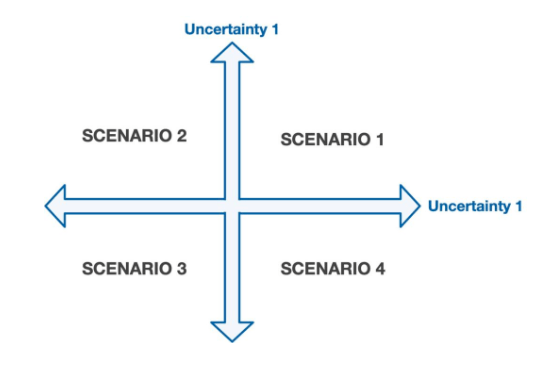
Scenario Planning
See more
Foresight interest has had one of its cyclical resurgences since the early 1990s, which has resulted in a rapid expansion of formal foresight studies supported by governments and global agencies, notably many from the United Nations.
In contrast to fatalism, foresight gives us more power to influence our futures. People with the ability to plan ahead will be ready to take advantage of all the new chances being created by rapid social and technological advancement.
Successful foresight projects are designed to suit specific circumstances and objectives. Many techniques are used within foresight studies for consulting experts, gathering information and generating innovative ideas. No single technique alone can lead to a successful foresight project. Many techniques must be carefully integrated into a coherent overall foresight project design. Techniques commonly used in foresight studies include
Scenario workshops
Delphi surveys
Technology roadmapping
SWOT analysis
Cross-impact analysis
Critical technologies identification
Relevance trees
The focus of foresight techniques might be on the immediate future or the long term, and they can be qualitative or quantitative in nature.